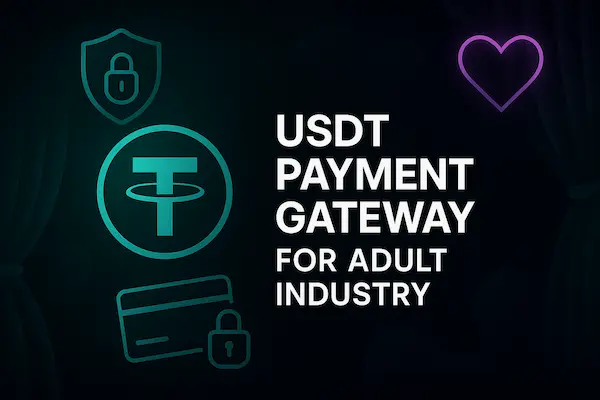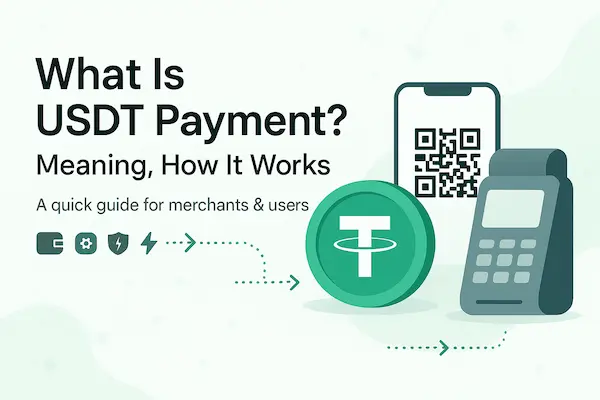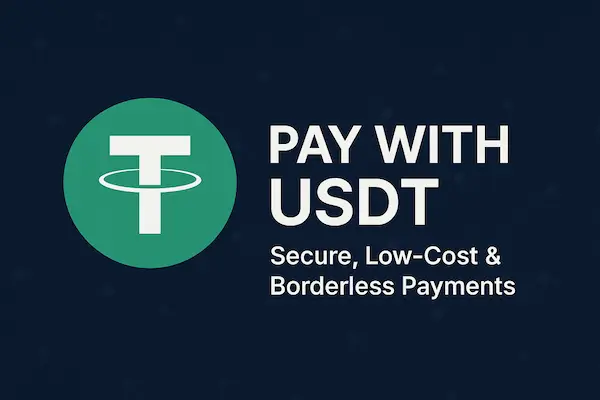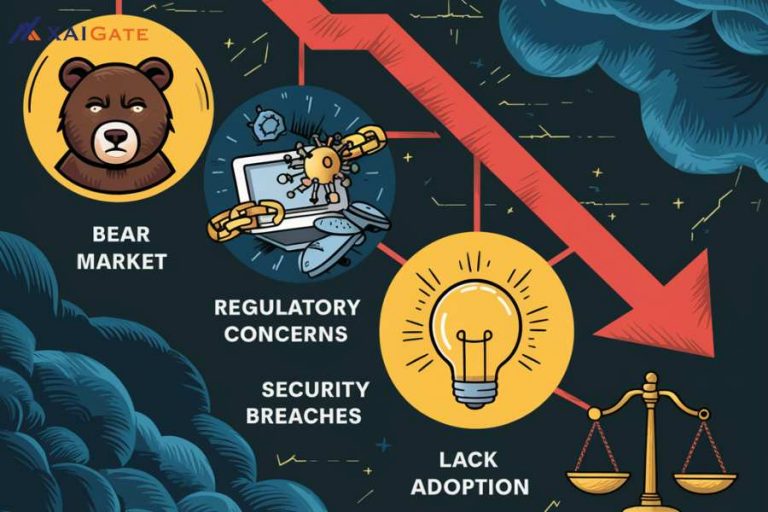Want to spend your cryptocurrency but don’t know where to start? You’re not alone! Finding shops that accept cryptocurrency can be tricky, but in 2025, the landscape is evolving rapidly. This guide provides a comprehensive overview of where you can use your Bitcoin and other digital currencies, making it easier than ever to shop with crypto.

Contents
- 1 Why Shop with Cryptocurrency?
- 2 Finding Shops That Accept Cryptocurrency: What to Look For
- 3 Categories of Shops Accepting Cryptocurrency
- 4 Popular Brands Embracing Cryptocurrency
- 5 How to Pay with Cryptocurrency
- 6 The Fast-Evolving Landscape of Crypto-Accepting Retailers in 2025
- 7 Securing Your Cryptocurrency Transactions
- 8 Why Consumers and Merchants Urgently Need This Guide Right Now
- 9 XaiGate: Enabling Crypto Payments for E-Commerce
- 10 FAQs – The Ultimate Guide to Spending Your Crypto in 2025
- 11 Conclusion: Why Acting Now Matters for Crypto-Friendly Businesses in 2025
Why Shop with Cryptocurrency?
The number of people owning cryptocurrencies in the world market is increasing. This sign has not shown any signs of abating in recent years. Therefore, it is not difficult to understand why some users need to use cryptocurrencies for shopping and it seems that this need is increasing.
Try our crypto payment gateway for shopping really brings benefits to users. For example, they do not need to convert to local currency when they need to shop. On the other hand, converting currency will also incur some transaction fees, conversion fees according to regulations from banks and other methods.
Moreover, more and more people are turning to cryptocurrency for its convenience, security, and potential for growth. Paying with crypto offers several advantages:
- Enhanced Security: Cryptocurrency transactions are often more secure than traditional methods, reducing the risk of fraud.
- Faster Transactions: Crypto payments can be processed quickly, especially for international transactions.
- Lower Fees: In some cases, crypto transactions may have lower fees compared to credit card processing.
- Increased Privacy: Cryptocurrency offers a greater degree of privacy compared to traditional payment methods.

Finding Shops That Accept Cryptocurrency: What to Look For
In the US, about 2,300 stores use cryptocurrencies as payment, while 15,174 companies do the same globally. The United States accounts for about 15% of merchants that accept cryptocurrencies. The most widely used cryptocurrency among shops is Bitcoin, which is accepted by 58% of crypto-friendly establishments.
Retailers are becoming more and more interested in cryptocurrency. Within the next 24 months, 75% of retailers say they intend to accept cryptocurrencies according to the Statista.
The challenge lies in finding reliable and trustworthy shops that accept cryptocurrency. Here’s a breakdown of what to consider:
- Direct Crypto Acceptance: Some shops directly integrate cryptocurrency payments into their checkout process.
- Crypto Payment Gateways: Many businesses use crypto payment gateways to facilitate transactions. These gateways act as intermediaries, converting crypto into fiat currency for the merchant.
Comparison Table: Spending Crypto vs. Traditional Payment Methods
| Criteria | Spending with Cryptocurrency | Spending with Traditional Payment Methods |
|---|---|---|
| Transaction Speed | Near-instant (seconds to minutes, depending on network). | 1–3 business days for international card payments; instant for local debit but with bank intermediaries. |
| Transaction Fees | Typically lower, especially for cross-border payments (0.1%–1%). | Higher fees, especially for international transactions (2%–5%). |
| Global Acceptance | Growing rapidly; thousands of global merchants now accept BTC, ETH, USDT, and more. | Universally accepted but subject to currency conversion fees and restrictions. |
| Security | Secured by blockchain; transactions are irreversible and less prone to fraud. | Centralized systems vulnerable to hacks, fraud, and chargebacks. |
| Privacy | Higher privacy; no need to share sensitive bank details. | Requires sharing personal and banking information. |
| Volatility | Crypto values can fluctuate; stablecoins can mitigate risk. | Stable value in local currency, but inflation and forex fees still apply. |
| Cross-Border Efficiency | Direct peer-to-peer without intermediaries; no hidden FX rates. | Multiple intermediaries and hidden conversion charges for foreign transactions. |
Categories of Shops Accepting Cryptocurrency
To make your search easier, we’ve categorized shops that accept cryptocurrency by industry:
Fashion
Looking to upgrade your wardrobe? Several online fashion retailers now accept Bitcoin and other cryptocurrencies. From high-end designers to streetwear brands, you can find a wide range of clothing and accessories that you can purchase with your digital assets.
Electronics
Tech enthusiasts rejoice! You can now buy the latest gadgets and electronics using cryptocurrency. From laptops and smartphones to gaming consoles and smart home devices, many online electronics stores are embracing crypto payments.
Food & Beverage
Satisfy your cravings with cryptocurrency! Order takeout, groceries, or even dine at restaurants that accept Bitcoin and other digital currencies. The food and beverage industry is gradually adopting crypto payments, making it easier to pay for your meals with digital assets.

VPN & Hosting Services
Protect your online privacy and build your online presence using cryptocurrency. Companies like NordVPN and Hostinger, known for their reliable services, readily accept cryptocurrency payments. Enjoy secure browsing and reliable hosting while utilizing your digital assets.
Popular Brands Embracing Cryptocurrency
Several well-known brands are leading the way in accepting cryptocurrency:
- NordVPN: A popular VPN provider that accepts Bitcoin and other cryptocurrencies for secure online browsing.
- Hostinger: A leading web hosting provider that allows customers to pay with crypto.
- Overstock was the first big shop to take cryptocurrencies, and Microsoft is now the biggest corporation to do so.
- Tesla (USA)
- Shopify (Canada)
- PayPal (USA)
- Emirates (UAE)
- Rakuten (Japan)
- And others
Bitcoin is friendly and widely accepted with 58% of companies participating in the survey. It is the most extensively used cryptocurrency. Bitcoin is accepted by at least 8,801 crypto-friendly companies. Additional well-known cryptocurrencies that are accepted by crypto-friendly merchants are Binance Coin (24%), Ethereum (35%), Litecoin (28%), and Bitcoin Cash (36%). Approximately 48% of companies have no immediate plans to adopt cryptocurrencies.
Comparison Table: Shop Categories – Crypto Acceptance Readiness (2025)
| Shop Type | Crypto Adoption Level | Main Drivers |
|---|---|---|
| Online Retail & E-commerce | High adoption | Easy integration with crypto payment plugins/APIs. |
| Travel & Hospitality | High adoption | Appeal to international travelers avoiding FX fees. |
| Luxury Goods | Medium to high adoption | High-value items suit crypto’s fast settlement and global reach. |
| Food & Beverage | Medium adoption | Urban and tourist areas testing crypto as a novelty and marketing hook. |
| Digital Services | Very high adoption | Tech-savvy customer base, instant payment verification. |
How to Pay with Cryptocurrency
Paying with cryptocurrency is generally a straightforward process:
- Choose a Shop: Find a shop that accepts cryptocurrency that sells the product or service you want.
- Select Cryptocurrency as Payment Method: At checkout, choose the cryptocurrency payment option.
- Use Your Crypto Wallet: You’ll typically be presented with a QR code or address to send your cryptocurrency. Use your digital wallet to complete the transaction.
- Confirm the Transaction: Once the transaction is confirmed on the blockchain, your order will be processed.
The Fast-Evolving Landscape of Crypto-Accepting Retailers in 2025
The retail world is transforming fast—where crypto was once a niche novelty, it has now entered the mainstream. In 2025, consumers and businesses are realizing that spending cryptocurrency is not just possible, but often smarter than classic payment methods.
From Fringe to Familiar – Crypto in Everyday Stores
More than 2,000 retailers worldwide now accept digital assets like BTC, ETH, and USDT in 2025. Whether it’s buying a coffee, grabbing groceries, or splurging on electronics, cryptocurrency payments are increasingly becoming part of daily routines.
Real-Time Payments with Lower Fees
Crypto transactions eliminate layers of middlemen—funds move directly from consumer to merchant. That means faster checkouts, reduced conversion friction, and lower fees compared to traditional credit card processing, especially for international buyers
Boosting Security and Protecting Privacy
Blockchain-based transactions are inherently more secure and privacy-respecting. They help merchants drastically reduce fraud and chargeback risks while offering users the discretion they increasingly demand
Securing Your Cryptocurrency Transactions
While cryptocurrency transactions are generally secure, it’s essential to take precautions:
- Use a Reputable Wallet: Choose a secure and reliable cryptocurrency wallet to store your digital assets. A hardware wallet like a Trezor offers an extra layer of security.
- Double-Check Addresses: Always double-check the recipient’s address before sending cryptocurrency to avoid errors.
- Be Aware of Scams: Be cautious of phishing scams and other fraudulent activities that target cryptocurrency users.
Why Consumers and Merchants Urgently Need This Guide Right Now
Today’s digital-first world demands clarity and trust. This guide is packed with the latest, verified insights into where crypto is truly accepted—and that makes it indispensable for both buyers and businesses.
The Knowledge Gap Is Shrinking—Stay Informed
While hundreds of stores now accept crypto, the information is scattered. This guide consolidates real-time acceptance data—spanning fashion, electronics, dining, VPNs, hosting, and more—making it indispensable for savvy consumers and retailers.
Aligning with Global Retail Trends
Retailers are not just experimenting—they’re committing. Over 75% of them plan to accept crypto in the next two years, signaling a market-wide shift that no business can afford to ignore.
Empowering Spending in a Volatile Age
As fiat currencies fluctuate and cross-border fees climb, crypto offers steadiness and speed. For consumers, the guide empowers smarter purchases—while for businesses, it’s a roadmap to capture global revenue with minimal friction.
XaiGate: Enabling Crypto Payments for E-Commerce
For businesses looking to tap into the growing cryptocurrency market, XaiGate offers a seamless crypto payment gateway for e-commerce websites. Our platform allows you to easily accept Bitcoin and other digital currencies, expanding your customer base and increasing sales. Integrate a secure and reliable crypto payment solution into your existing e-commerce platform with XaiGate.
As more and more consumers adopt cryptocurrency, it’s crucial for businesses to adapt and offer crypto payment options. XaiGate makes it easy to embrace this trend and stay ahead of the competition.
FAQs – The Ultimate Guide to Spending Your Crypto in 2025
1. Which types of shops accept crypto in 2025?
You’ll find acceptance across electronics, fashion, travel, gaming, and selected food & beverage chains—plus many online-first brands that ship worldwide.
2. How do I know if a store takes crypto at checkout?
Look for a crypto payment badge on product or checkout pages; if it’s not obvious, search the store’s help center or try the payment step to see supported methods.
3. What coins are most commonly accepted by merchants?
Bitcoin, Ethereum, and major stablecoins lead adoption; many stores also add Layer-2 and EVM chains to reduce fees and speed confirmations.
4. Is paying with crypto cheaper than using a card?
It can be—especially cross-border—since you may avoid some FX and card network fees. Actual cost depends on network congestion and the gateway’s pricing.
5. Are crypto payments reversible like credit-card chargebacks?
No. On-chain transfers are final, so good stores and gateways provide clear refund flows, order references, and support tickets instead.
6. How long do crypto payments take to confirm?
Most gateways detect payments instantly and complete confirmation within minutes, with options to tighten or loosen confirmation rules by coin/network.
7. What about returns and refunds when I paid in crypto?
Policies vary: some refund in the original coin, others in store credit or fiat at the provider’s reference rate. Always check the returns page before purchasing.
8. Is it safer to pay with stablecoins?
Stablecoins help avoid price swings and often settle faster on low-fee networks, though you should still verify addresses and follow basic wallet hygiene.
9. Do physical stores accept crypto, or is it mostly online?
It’s mostly online, but in-person acceptance is growing via QR codes and POS integrations—especially in tourist areas and tech-forward retailers.
10. Why might shoppers prefer stores using XAIGATE for crypto payments?
XAIGATE focuses on quick approvals, transparent fees, wide coin support, and dependable receipts—making checkout smoother for both shoppers and merchants.
Conclusion: Why Acting Now Matters for Crypto-Friendly Businesses in 2025
In 2025, the conversation around cryptocurrency in retail is no longer if but how fast businesses can adapt. With major brands and independent merchants alike embracing digital assets, the competitive gap between those who accept crypto and those who don’t is widening at record speed.
Economic shifts, evolving payment regulations, and a consumer base that’s more tech-savvy than ever are pushing crypto adoption into the mainstream. From instant cross-border transactions to reduced fees and enhanced payment security, the business case is stronger than at any point in the past decade.
For merchants, integrating a trusted gateway like XAIGATE isn’t just a tech upgrade—it’s a move to secure market share in a payment landscape that’s changing in real time. For consumers, it’s about gaining more choice, control, and speed in every purchase.
The momentum is here. Businesses that act now will lead the conversation in 2025 and beyond—those who wait may find the market has already moved on.
Learn more about the technology behind cryptocurrency by follow us GitHub, and X (@mxaigate)










